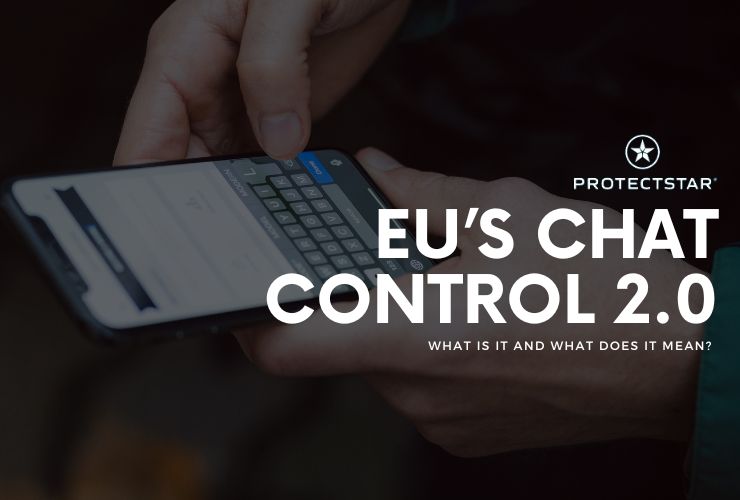EU's Chat Control 2.0: Is It a Threat to Privacy and Democracy?

The European Union (EU) is renowned for its commitment to human dignity, freedom, democracy, equality, the rule of law, and human rights. These values are not only the foundation of the EU but also essential criteria for any country seeking accession. However, recent developments suggest that the EU might be deviating from these principles. The proposed Chat Control 2.0 legislation, which aims to monitor private communications across all chat platforms, has sparked significant controversy and raised concerns about the future of privacy and democracy within the Union.
What is Chat Control 2.0?
Chat Control 2.0 is an initiative proposed by EU Commissioner Ylva Johansson, intended to combat child sexual abuse online by monitoring private messages on all chat platforms. While the intention behind the proposal is noble, the method has been deemed excessively intrusive and a potential infringement on fundamental rights.
Understanding Chat Control 2.0
Chat Control 2.0 is a policy initiative aimed at addressing the growing problem of online child sexual abuse. This legislation mandates the scanning and monitoring of private communications on all digital platforms, including messaging apps, email services, and social media. Here are the key components of it:
- Automated Scanning: All private messages and media shared on digital platforms would be subject to automated scanning for potential child sexual abuse material (CSAM). This includes text, images, and videos.
- Artificial Intelligence and Machine Learning: The scanning process would heavily rely on artificial intelligence (AI) and machine learning algorithms designed to detect CSAM. These systems would flag potentially illegal content for further review by human moderators.
- Mandatory Reporting: Digital platforms would be required to report any detected CSAM to law enforcement authorities. This aims to streamline the process of identifying and prosecuting offenders.
- Encryption and Backdoors: To facilitate scanning, the policy might necessitate the introduction of backdoors or weakening of end-to-end encryption, which currently ensures that only the communicating users can read the messages.
- Data Retention and Access: Platforms would be required to retain user data and provide access to law enforcement agencies upon request. This includes metadata and the content of flagged communications.
The Clash with EU Values
The core values of the EU emphasize the protection of individual rights and democratic principles. Monitoring private communications contradicts these values by imposing a general suspicion on all citizens, treating everyone as a potential suspect. This broad surveillance approach undermines constitutional principles and the presumption of innocence, a cornerstone of democratic societies.
Public Opposition and Privacy Concerns
The initiative has faced significant backlash from privacy advocates, civil society, and several Member States. According to a YouGov poll, 72% of EU citizens oppose such measures. Critics argue that indiscriminate surveillance infringes on fundamental rights and freedoms, compromising privacy and the confidentiality of communications.
Despite this widespread opposition, there are allegations of pressure and lobbying from technology firms and law enforcement agencies. This has led to concerns about potential conflicts of interest, with critics suggesting that those pushing the proposal might stand to profit from mass surveillance technology.
Hypocrisy and International Criticism
The EU has historically criticized countries like Russia and China for implementing similar surveillance measures. By advancing Chat Control 2.0, the EU risks appearing hypocritical, undermining its credibility on the international stage. Critics argue that the EU should lead by example, adhering to the democratic principles it champions.
Impact on Freedom of Speech
One of the gravest concerns surrounding Chat Control 2.0 is its potential impact on freedom of speech. The knowledge that private communications are subject to monitoring could lead to self-censorship, as individuals might refrain from expressing dissenting opinions or engaging in open discussions on sensitive topics. This chilling effect on free speech undermines democratic engagement and stifles the free exchange of ideas, which are vital for a healthy, functioning democracy.
Malware and Spyware Risks
Moreover, the implementation of Chat Control 2.0 could inadvertently increase the spread of malware and spyware programs. Surveillance infrastructure requires the insertion of backdoors or vulnerabilities into communication platforms, which can be exploited by malicious actors. These security weaknesses could lead to a surge in cyber attacks, compromising the safety and security of EU citizens’ data. Instead of enhancing protection, the legislation might open the door to new threats, undermining trust in digital services and harming the overall cybersecurity landscape.
The Real Impact on Online Security
From a security standpoint, indiscriminate surveillance may create more problems than it solves. While the goal is to prevent child abuse, the collateral damage includes a significant reduction in online privacy and a heightened risk of cyber threats. Effective cybersecurity relies on robust, end-to-end encryption and secure communication channels, which are compromised by such surveillance measures.
Our commitment is to protect users from malware and spyware, ensuring their online interactions are safe. Chat Control 2.0's approach conflicts with this objective, as it could lead to the widespread dissemination of vulnerabilities and the erosion of secure communication standards. We believe that security and privacy should not be mutually exclusive but rather work in tandem to provide a safe online environment.
The proposed Chat Control 2.0 legislation has sparked a critical debate about the future of privacy and democracy in the EU. It raises essential questions about how to protect citizens while upholding the fundamental values that the Union stands for.
What is your take on this? Let us take up the discussion in our social media channels!